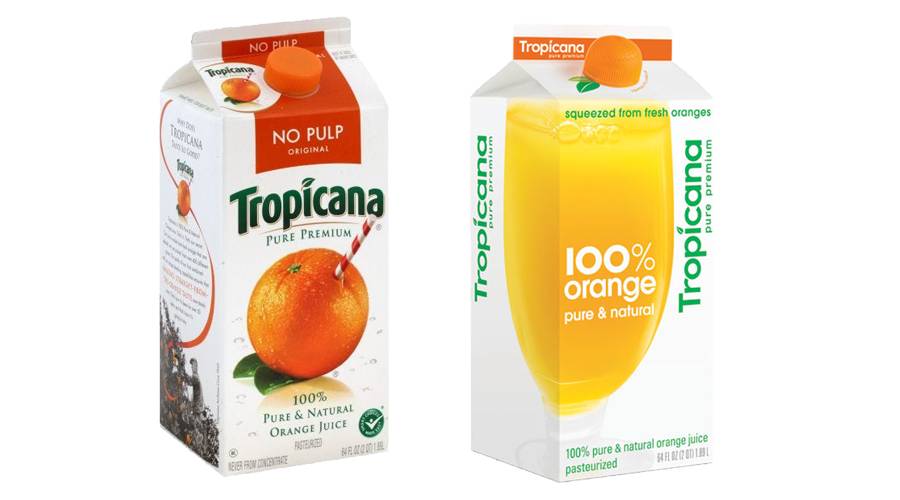When Rebranding Goes Terribly Wrong
For Pepsi, the comparisons to Obama’s logo did little to damage the brand. But that is not always the case for rebranding campaigns as Tropicana’s 2009 example demonstrates. Tropicana paid $35 million to rebrand its orange juice. The rebranding led to the loss of an estimated $20 million in sales. Thirty days after Tropicana launched its redesign, it went back to its original design after losing 20% of its revenues that first month.

The problem with the redesigned is that it assumed too many things at once. First it assumed that the name, “Tropicana” equated to orange juice. It didn’t because the redesign eliminated the orange reminding everyone that the container contained orange juice. The redesign made consumers think if the box contained orange juice or something else immediately eliminating the impulse buying habit of most consumers who likely grabbed the container that looked more like orange juice than the one that looked like something else that was not orange juice.
The rebranding diminished the product, orange juice resulting in immediate lost sales. The redesign may have looked modern and exciting, but it ignored the most fundamental idea behind a brand - encouraging consumers to consume it.
Tropicana tried to explain the failure by suggesting that there was an “emotional bond” to the branding that was replaced. Although this likely played a part in the fiasco, the sudden drop in sales betrays more a choice based on knowing that orange juice is in the box than what the brand conveyed. Sales figures do not show a drop in sales of orange juice at the time. Rather, the loss in sales of Tropicana juice was an indication that consumers were looking for orange juice and when they questioned whether Tropicana’s new look contained orange juice, they simply gravitated to the next brand.
Both the Pepsi and Tropicana rebranding took an estimated five months to complete.
Interestingly the designer behind Pepsi’s and Tropicana’s rebranding in 2009 was the Arnell Group. The Arnell Group closed four years later after being in business for over a decade.

